Anzac Arch was built as a monument of appreciation to the men who fought in the First World War. It was funded by public subscription, with £1 000 raised. Unveiled in 1919 the Arch was planned as a temporary structure to be dismantled once all the returning troops had been welcomed home. Public attachment to the Arch saw it stand until 1925 when it was demolished on the grounds that it had become unsafe, and to accommodate changes at the Adelaide Railway Station. Plans to build a replica Arch in concrete were never realised.
Plans and construction
Fundraising for the building of the Anzac Arch was led by the Cheer-Up Society who initiated the project. It was reported that:
The arch was designed in the Corinthian style of architecture, and was symbolical of gladness and triumph. The panels were designed in laurel wreaths and palm branches, symbolical of victory and peace. (The Advertiser, 29 January 1919, ‘The Anzac Arch’, p. 9)
The Premier, Archibald Henry Peake, laid the foundation stone on 17 October 1918. Messrs H Emmett & Son erected the Arch, supervised by the designer Mr Quinton Bruce, hon. architect of the Cheer-Up Society .
Building of the Arch was marred by accident. On 11 November 1918 a passing horse-drawn trolley caught a guy rope during construction, dislodging scaffolding and toppling two workers from the structure to the ground, some 35 feet in distance, or just over 10 metres. The men who fell suffered broken bones, cuts and abrasions but appear to have recovered from the incident.
Opening and use
Anzac Arch was formally declared open by Sir William Sowden, president of the Cheer-Up Society, on Tuesday 28 January 1919. (It is incorrectly reported as 29 January in Cheer Up: A Story of War Work by Frederick J Mills in 1920, the newspapers of 1919 report on the opening a day earlier.) Large crowds attended the opening and in addition to Sir William’speech there was an address by the Premier, Mr Archibald Henry Peake, and by Mr Quinton Bruce, hon. architect.
The purpose of the Anzac Arch was to honour the ANZAC troops and create a place for welcoming home returning soldiers. It provided an atmosphere of grandeur for troops marching in from the train station. Anzac Arch became a place where wreaths were laid to remember those who died. Once standing the Arch also provided a focal point for other events. In 1919 and 1920 the Arch was the site of Violet Day commemorations. In 1920 the Arch was a gathering place for crowds welcoming the visiting Prince of Wales, Edward, representing his faterhe King George V on a royal tour to thank Australians for their participation in the First World War.
The end of the Arch
Plans for dismantling the Arch were discussed as early as 1923 but it was not until 1925 that it finally came down. Newspapers reported plans to display a photo of the Arch in a relocated Cheer-Up Hut and the idea of a replica arch to be built appeared popular but never came to fruition.


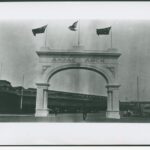

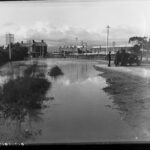
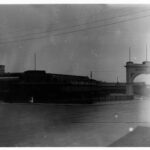
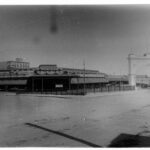
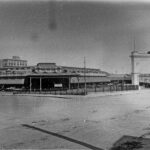
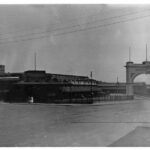
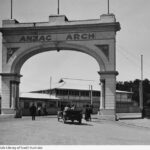
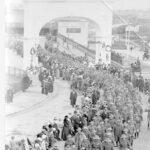
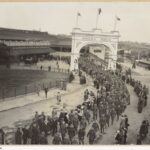
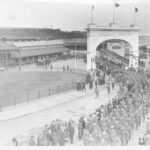
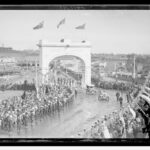

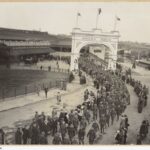
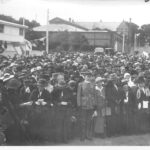
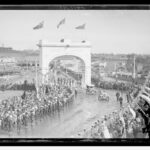
Comments